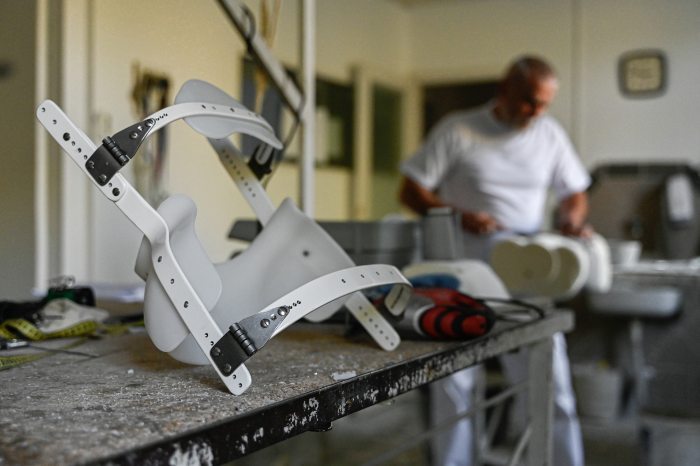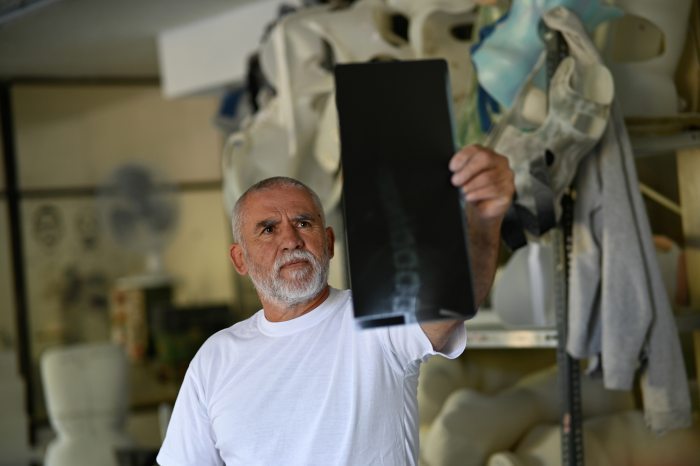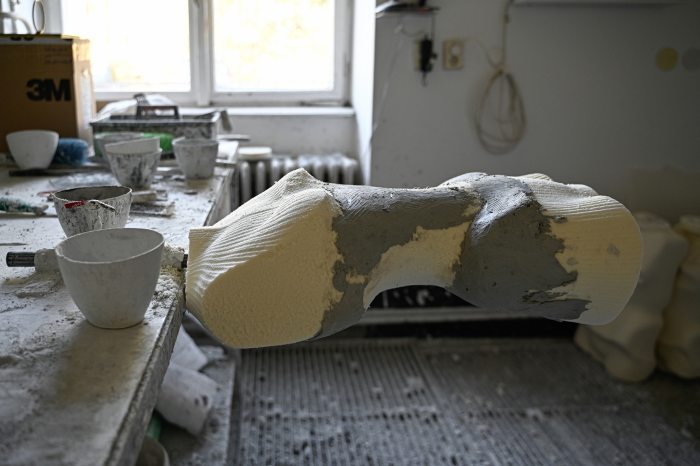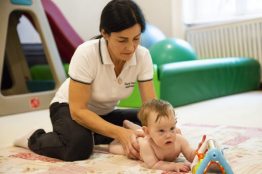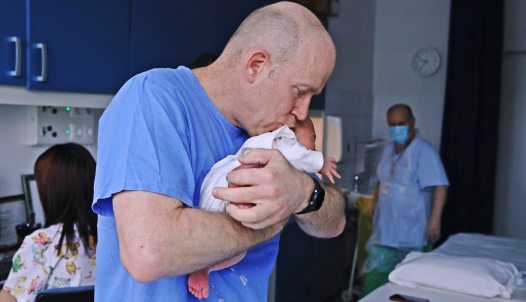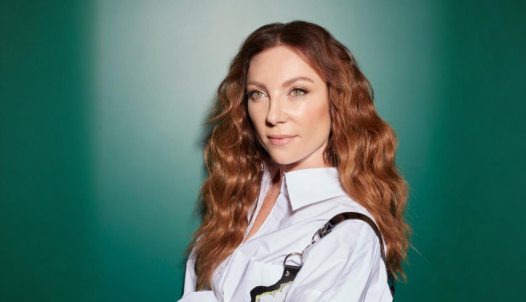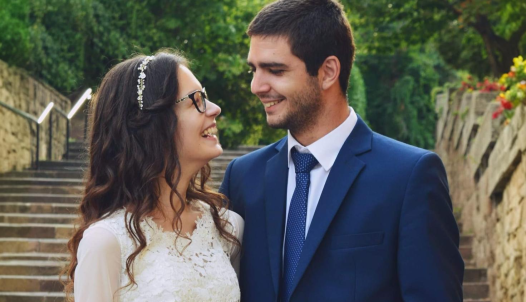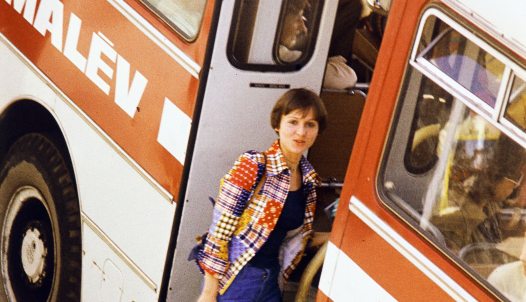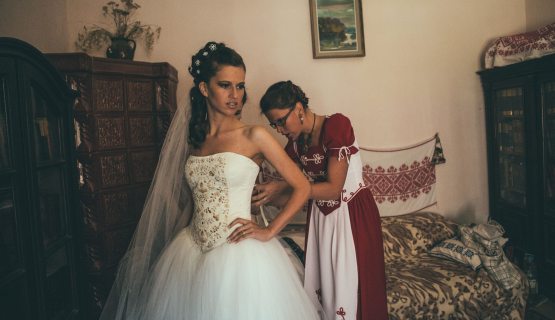Shaping body and soul – Ferenc Marlok makes scoliosis braces for teenagers
Ferenc Marlok is a master medical equipment technician who designs and produces custom-made plastic back braces for children with scoliosis. At first, the teenagers concerned cannot and do not want to imagine wearing unattractive-looking plastic braces for even a single minute. Then they meet ‘Feri bácsi’, as they call him affectionately, and everything changes: the smiling, stern-eyed specialist makes the tears disappear, and they are replaced by determination and courage. Often, the children's souls are shaped as well as their bodies during the years of treatment.
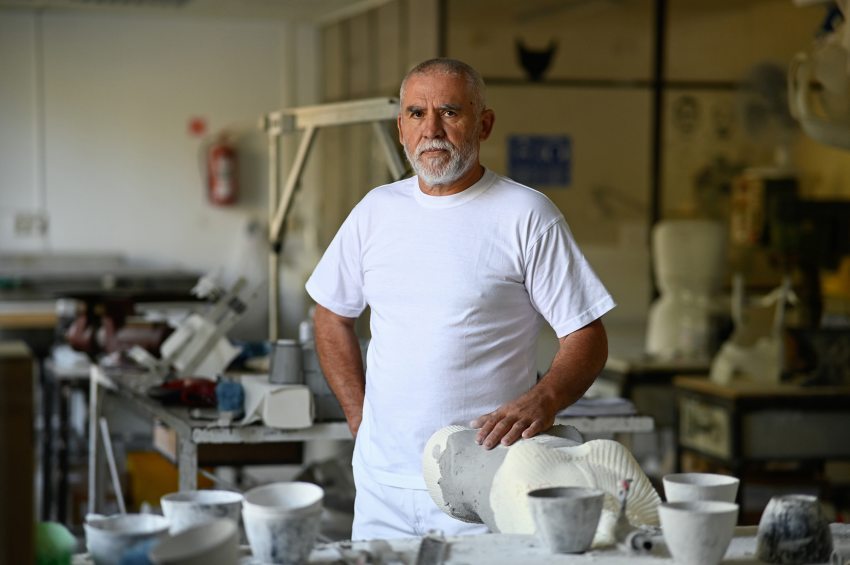
I've known Ferenc Marlok for a long time now and I know that he has a dying trade, which few people understand as well as he does. "I have been working with children with scoliosis and making various scoliosis braces for almost forty years. We are talking about a structural spinal condition of unknown origin, of unknown background, and since we don't know what the causes are and what the answers are to the whys, the treatment for the time being is with this plastic corrective device, which functions a bit like a dental brace. We give the spine an external support that acts like a stake next to a bending little tree: the back brace is trying to steer the curved spine in the right direction."
"The children are the reason I've been in this profession for decades: it's wonderful to fight for them, to help them, to pave their way, to make them straighter."
Treatment is very difficult because no teenage child dreams of wearing a plastic back brace for twenty-two hours a day for years. The rules are firm, as is the brace, but Feri talks easily with almost every child and gets them to cooperate. What's the secret?
“I suppose it is that I don’t just make a piece of plastic for them but take time to talk to them and kids appreciate this. They sense that I really concerned about them, and their problem, I pay attention to them, I want to see them regularly and I am curious about whatever they have to say. When we start working together in therapy we talk about the importance, the sanctity of a promise. “ You promised, we shook hands, we’ve never lie to each other.” "The fact that I'm not only making them a plastic, but I'm taking the time to make them. And a child understands that I really want to spend time with him, I really want to pay attention to him, I want to see him regularly, I'm curious about him. When we start to work together in therapy, I talk a lot about the sanctity of the word. "You promised, we shook hands, we never lie to each other." And they tell me the truth, and that's a great gift. I see that rigour pays off. Sometimes we just talk and they give me the gift of their trust, which is wonderful. I mentioned the handshake. If one learns as a child that a handshake means more than anything, then as an adult they will know that it is an obligation. I hope they take those values with them."
Feri speaks with great passion and you can sense the power he has to win over children. Yet the question is whether it is possible to get bored of this work in such a long time, since the tools are the same, the treatment is the same and the problem with which he is being consulted is the same. Are you not in danger of burnout, I ask. "You have to pray a lot," he replies, "pray for humility, for good judgment. That I can make the right decision that day, in the best interests of the child
You can only do it with the help of God, otherwise you can get incredibly tired. I always pray for the day and at the end of the day I can say that I have made the effort.
I often realize in hindsight where I should have said two sentences more or two sentences less, but you always have to try. Sometimes I succeed."
During the long treatment - I ask further - what gives you feedback, how can you tell if you have reached a child? He answers that it often takes years to realize at the farewell that it was very important for the child that we had to meet regularly, or that he was encouraged here. One of them said, "You were a certainty."
Since he mentioned prayer, we start talking about faith. "I grew up in a Christian home, we were altar boys as children, and although the regime at the time frowned upon these things, our family was in church every Sunday. I've been a lay pastoral assistant for eleven years now, which means I can administer communion at Masses, conduct liturgies when there's no priest, conduct funerals, and house dedications."
You might think that there is little else to his life besides the passionate work he does and the tasks he takes on in the church, but for Feri, his family - his role as a husband and father - is the most important. "You have to be a rock as well as a poppy.
The rock is solid, and secure, and the poppy has only one day to live, it must be at its best and the most beautiful on that one day. I want to combine these two so that I can be the most giving, the most lovable, but also the most secure.
My most important task is to pass on to my own children the importance of personal faith, which is not just about going to church or whether I put the money in the money box. I have always prayed that they would have a personal, secure, mountain-moving faith. I am confident that they have that now, and I am very proud of them. I also pray for humility and for my wife, who is a wonderful woman for putting up with me."
Whatever Feri talks about, he does it in a determined and confident way, but he is also honest about the difficulties he faces "In love, in work, in faith, there are many struggles. When you're young, you think you're strong and you can do anything. But when the burden is put on you, you may have to find a way to relieve the tension, and one way people find at hard times is to drink. You have to be strong to realize that this is very wrong and to be able to say that I'm not doing this from tomorrow. That's how I put the cigarettes down when I was discharged from the army, I said no more from tomorrow, never again. I said the same about drinking, that I couldn't go on like that, because there was a time when I drank every day. I realized that I could lose my family, I'd go under, there was no point. If you want to be a rock and a poppy, then alcohol doesn't fit in the picture, because then you're not yourself. At work, which was becoming more and more demanding and rigorous, there was no room for even one day of slacking off. You have to be able to control your ‘Brother Donkey ", as St Francis referred to the body. I haven't had a sip of alcohol in almost thirty years."
When I reply that his work also seems to be a serious passion, he smiles and says: "That's me, it's in my blood, I've learned it from my father: you have to be at the front of the line at work.
My principle is not "I've got an idea, you do the job", but rather "I've got an idea, let's do the job together."
Whatever the job - animal husbandry, forestry, postal services - I always tried to carry the heavy lifting. But for the fact that I was able to make someone of myself the credit is not mine but of the prayers of my mother, my father, and my wife."
